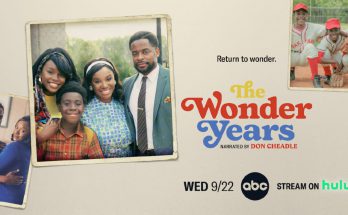In true pandemic style, I’ve had the chance to catch up on some old shows, and I binged My So-Called Life in a week with no regrets. I never appreciated this show when it came out. I was a young girl of 12, and my mother didn’t think the show’s themes were appropriate for me. She may have been right, but re-watching it now, I can say that My So-Called Life is a perfect show. It’s one of the only television shows I’ve ever seen that fully explores an entire family as real people, multi-dimensional, each with storylines, not brought up for a punchline or for extra drama, but just because people live complicated lives and they are all as equally important as another, regardless of who the main character happens to be.
And while us 90s girls would have argued vehemently against this thesis at the time, it turns out Patty Chase is the main character. Against the tantalizing teenage will-they-won’t-they between Angela and Jordan, the dynamics of friendship between misfits all trying to find themselves, and the mirroring of teenage feelings right back at the audience, a mom wanting the fridge door shut couldn’t hold young attention for long.
But now I can see that Patty carries the show on her unassuming, motherly, womanly back, through its twists and turns. She falters and slips up, and is too big and then too small. She is everything a 90s girl would have wanted in a mom, and her struggle remains real today. But when you watch, you hardly recognize that struggle. Because as a career-woman and a stoic yet caring mother, she minimizes her own journey to lift up the journeys of those around her. She is exactly what society made her. She is the heart.
Capturing the Push-Pull Between Moms and Daughters
Think about it. Patty is a real person. She’s not just the mother figure. She doesn’t have one category of mom she fits into. We see her question herself—her looks, her aging, her mothering abilities, her marriage, her life path. She can give Angela a pep-talk or an awkward look when the teenager-mom relationship is too tenuous for words to be exchanged, then walk into her bedroom and bemoan how women get culturally less attractive as they age, but men get more attractive. We see her try not to push those beauty standards onto Angela, and we see her fail. And we see her heart break at her failure. “I’m not like you,” Angela yells at her. “You’re beautiful, and I’m not.” And Patty picks herself up, and she tries to do better.
“When do I get to go forward,” Patty asks while ballroom dancing with her husband Graham.
“Usually it’s the men who go forward,” the instructor answers.
“Tell me about it,” Patty scoffs, complaining that it’s harder to go backward.
Patty and Graham are only at the ballroom dancing class because Patty can sense that something is wrong with her relationship, and she is trying to save it, to bring back the closeness. She is trying. That’s what Patty does, day in and day out. She tries.
She tries to be true to herself, while confined in the societal box of woman and mother. She tries to be true to herself while playing the role of woman and mother while also being her husband’s boss. She asks everyone if she should cut her hair short. “Like Hilary Clinton?” they all ask. “Men like long hair and when you wear red,” her best friend tells her.
When she shows up for dancing, she’s cut her hair in the ultimate 90s executive move. She’s wearing a red dress. She is full of compromises. She tries not to apologize for her existence, which is a powerful hurricane of matriarchy. But she does apologize for it, over and over again. She’ll state her truth, and follow it up with “in my humble opinion,” which is half-sass, half-apology for existing every single time.
She is complicated and messy. She has the best of intentions as a mom, but she can’t always make it across the finish line. When she wants to ask Angela about rumors that she’s having sex with Jordan Catalano, she ends up bungling it and pushing Angela away. She’s just worried, but the parent-child obstacle course is too much to overcome.
She takes Ricky in when he needs their family and their home, but she accidentally (or accidentally on purpose) kicks him back out not once but twice. Because she lives in the realm of protecting her kids and protecting everyone else.
Ricky landed on his feet without her, but when Patty was faced with the consequences of what she’d put in motion, you could feel her heart break.
She was not perfect. She was not all loving, all giving, all sacrifice. She had ambition, hopes and dreams, and confidence hiccups. She made wrong decisions, sometimes big ones. She was the perfect mom in these imperfections.
In this way, she is the ultimate mother. She lets people go their own way, she tries to guide, she allows them to flourish.
She always puts her kids first, even when she’s ignoring them, going against their wishes, or smothering them with 90s style love. She understood while not understanding, she persevered whether or not she should have, in her work, with her dad, with her husband.
Particularly with her husband she makes compromises. She mothers her husband in a way that perpetuates the systemic misogyny we see in the world, not because she is a proponent of it, but because she loves him. She constantly walked the line of protecting her own family versus protecting the rest of the world which is something mothers today understand on a molecular level.
Patty Chase is our imperfect hero.



